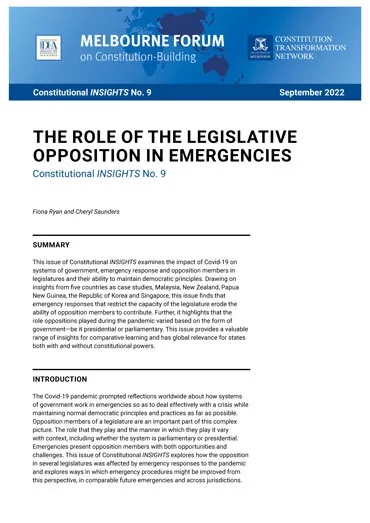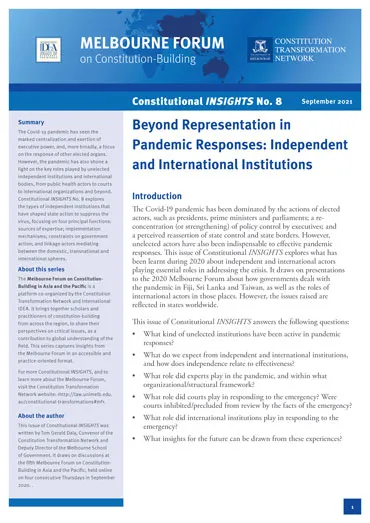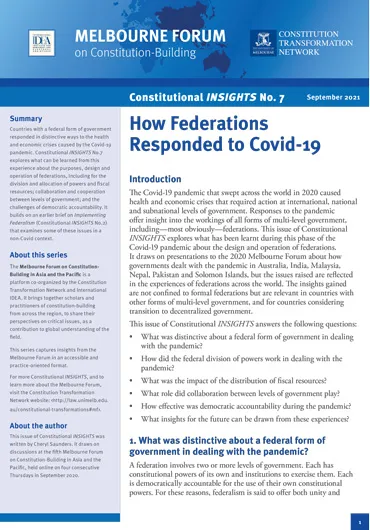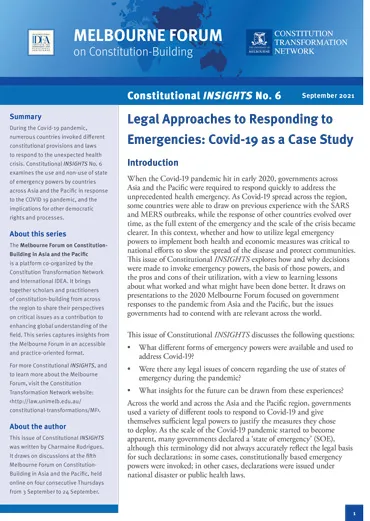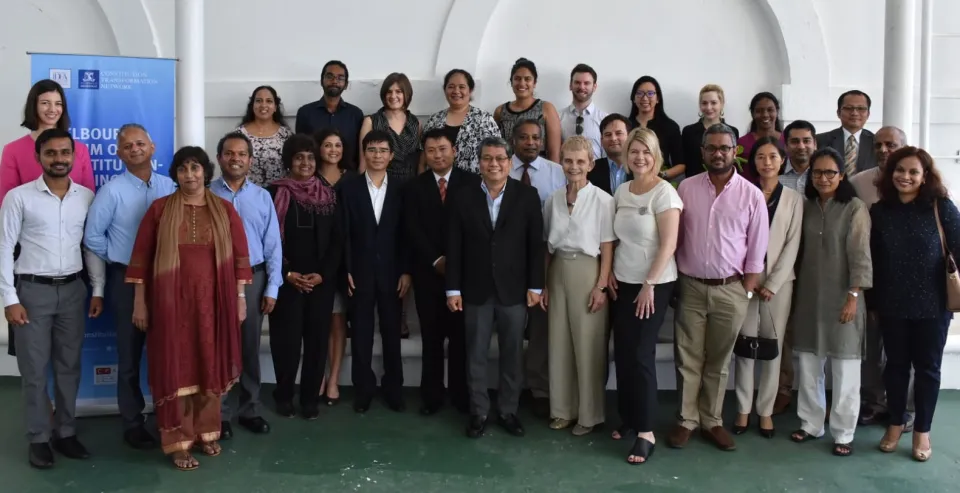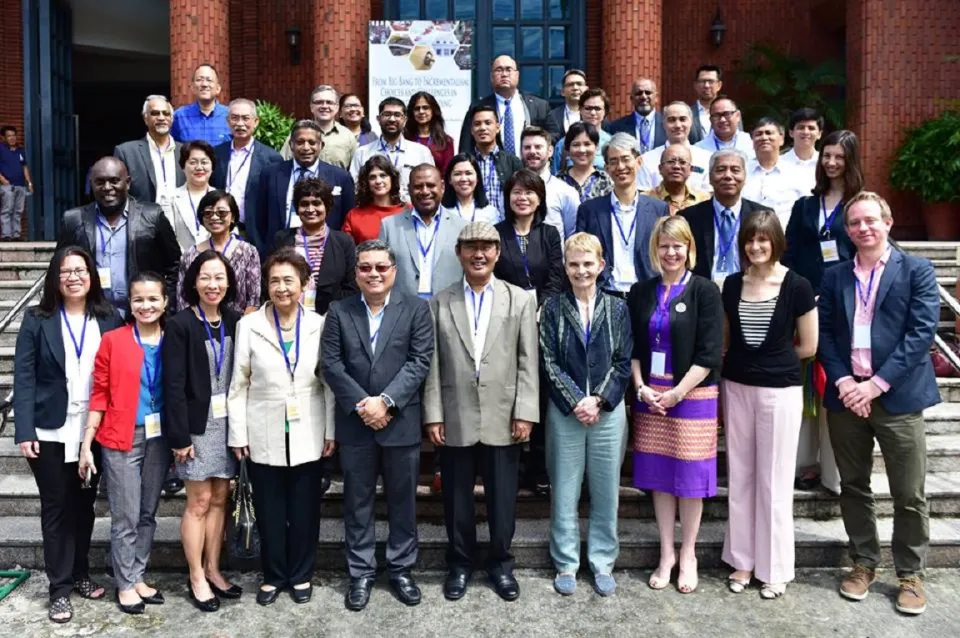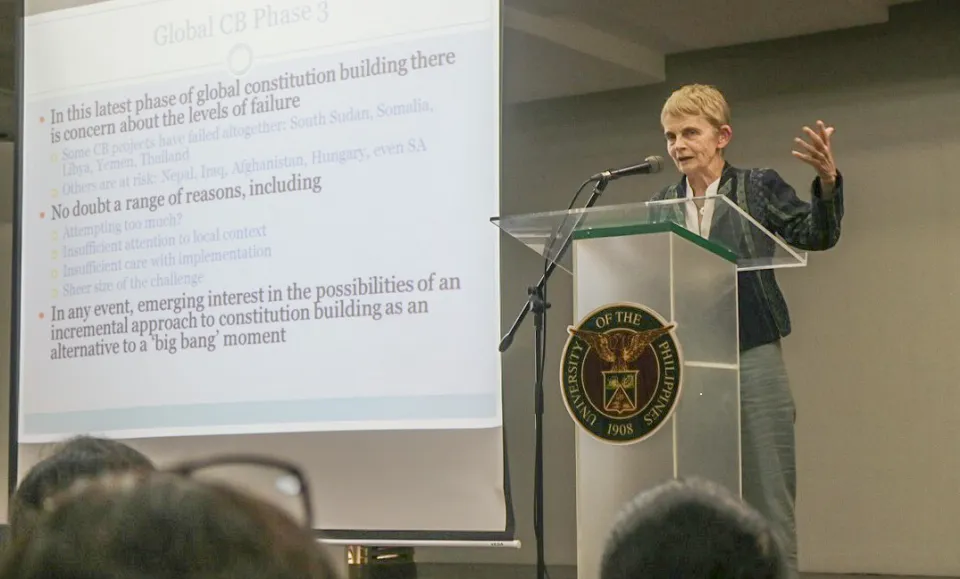Asymmetric Territorial Arrangements in Decentralized Systems
This issue of Constitutional INSIGHTS deals with the questions presented by constitutional or legal arrangements that treat one region of a state differently from others.
Differential treatment of this kind is sometimes described as ‘asymmetry’. Asymmetry is a feature of constitutional arrangements in all parts of the world. Examples of asymmetry on which this issue of Constitutional INSIGHTS draws include Jammu and Kashmir in India; Aceh in Indonesia; the Bangsamoro region in the Philippines; the Autonomous Region of Bougainville in Papua New Guinea; Sabah and Sarawak in Malaysia; and the Oecusse in Timor-Leste.
The Melbourne Forum on Constitution-Building in Asia and the Pacific is a platform co-organized by the Constitution Transformation Network and International IDEA. It brings together scholars and practitioners of constitution building from across the region, to share their perspectives on critical issues, as a contribution to global understanding of the field.
This series of publications captures insights from the Melbourne Forum in an accessible and practice-oriented format.
Details
Contents
Introduction
1. What does asymmetry involve?
2. When might it be relevant to consider use of asymmetry?
3. How is asymmetry established?
4. What issues may arise in the course of implementing asymmetry?
References and further reading
Give us feedback
Do you have a question or feedback about this publication? Leave us your feedback, and we’ll get back to you
Send feedbackAsymmetric Territorial Arrangements in Decentralized Systems
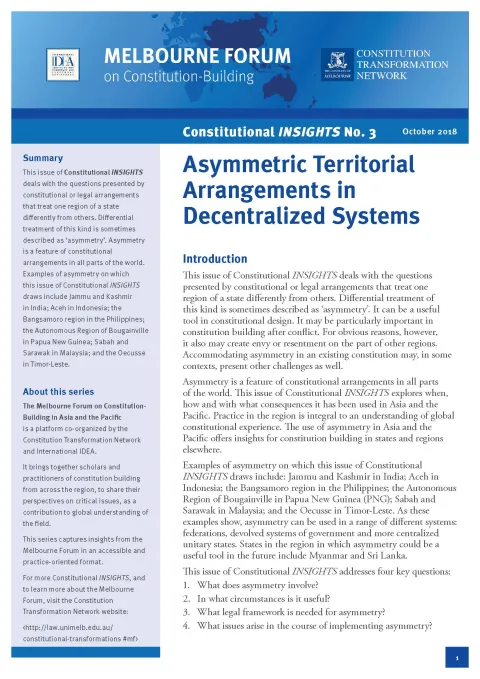
| Total views | 5927 |
|---|---|
| Downloads | 12 |
| Rating |
Give us feedback
Do you have a question or feedback about this publication? Leave us your feedback, and we’ll get back to you
Send feedback
